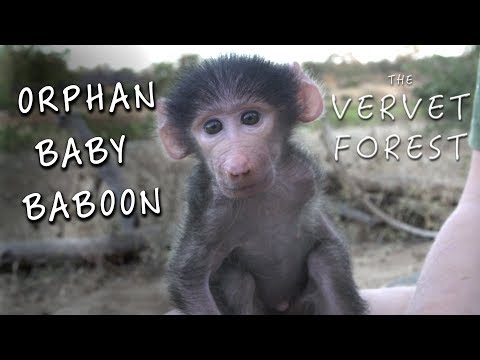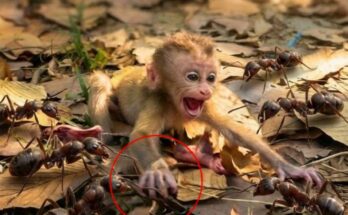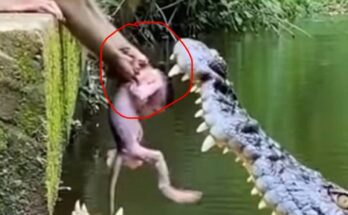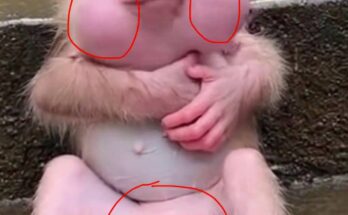
The early morning light spills through the dense canopy of the Vervet Forest, casting dappled shadows on the forest floor. The sounds of chirping birds, rustling leaves, and distant monkey calls create a peaceful symphony of nature. In the middle of this green paradise sits the CARE Sanctuary — the Centre for Animal Rehabilitation and Education — where rescued primates are given a second chance at life.
Among the many primates at CARE, there is one little soul who has captured the hearts of every caretaker, volunteer, and visitor alike — a baby baboon named Mali. Just a few months old, Mali is full of curiosity, energy, and mischief. She was brought to the sanctuary after her mother was killed by a local farmer who viewed baboons as pests. Alone and traumatized, Mali arrived clinging to a blanket, terrified of everything and everyone.
But today, she’s anything but afraid.
As I sit on a wooden log in the warm morning sun, Mali climbs into my lap with ease, her tiny hands wrapping around my fingers. Her fur is soft and warm, and her bright eyes sparkle with curiosity. She reaches up to touch my nose, then lets out a soft baboon “chuff,” a friendly vocalization. It’s her way of saying, “I like you.”
Hanging out with a baby baboon is unlike anything else. It’s playful, unpredictable, and deeply moving. Mali treats me as one of her own — tugging gently at my shirt, trying to groom my hair, and occasionally snuggling close when she gets tired. These are natural social behaviors for a baboon, especially one so young. In the wild, she would be clinging to her mother’s belly or riding on her back, learning how to navigate the world through close contact and play.
At CARE, the goal is to help orphaned baboons like Mali heal emotionally and eventually integrate into foster troops made up of other rescued baboons. The process is slow and careful. Young baboons are raised with as little human dependence as possible, while still receiving the love and security they need in their early months.
Mali spends most of her day in the forested enclosure where she can explore, climb, and interact with other juveniles. When she’s not playing, she’s napping in the arms of a caregiver or munching on a banana, her favorite snack. Every experience is part of her emotional and physical growth — from the feel of leaves beneath her feet to the thrill of leaping from branch to branch.
One particularly touching moment occurs when Mali spots an older female baboon named Tandi nearby. Tandi has fostered several orphans in the past, and she watches Mali from a distance. Mali, in turn, pauses her play and looks up, her expression suddenly serious. She slowly approaches, hesitating just a moment before reaching out her hand.
Tandi responds by gently grooming Mali’s head — a huge step in their relationship and a promising sign for Mali’s future in a troop.
Spending time with Mali reminds me of how emotionally complex baboons truly are. They grieve, they love, they play, and they form bonds as strong and meaningful as our own. Watching her laugh-like screeches as she tumbles through the grass or her quiet sighs as she curls up to nap, I’m reminded that she is not just an animal — she’s an individual with a story, a heart, and a future.
CARE’s work is about more than just rescuing animals; it’s about restoring their right to live as they were meant to — free, connected, and safe. Mali’s journey from frightened orphan to playful forest explorer is a testament to that mission.
As the sun begins to dip behind the trees, Mali climbs onto my shoulder one last time, wrapping her arms around my neck. It’s a gentle hug — the kind only a baby baboon can give. And in that moment, surrounded by the peace of the Vervet Forest, I know I’ve been given a gift few people will ever experience: the trust and affection of a wild heart learning to love again.


